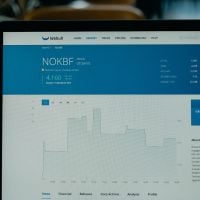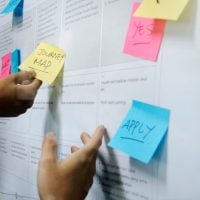Deadline: 22-Mar-2024
The Government of Canada is currently accepting applications for the Wolastoq/Saint John River Freshwater Ecosystem Initiative to provide financial support for projects that will improve the water quality and ecological health of the Wolastoq/Saint John River Watershed.
As part of the Federal Freshwater Action Plan, the Government of Canada is taking action to restore and protect freshwater ecosystems of national significance through Freshwater Ecosystem Initiatives.
Funding Information
- Projects are eligible for funding up to a maximum of $250,000 per project. Projects can be single or multi-year in nature but must be completed by March 31, 2027.
- The current request for applications is for projects that will begin during the 2024/25 Fiscal Year. Projects that are not funded can be re-submitted through a future call for applications.
- At least 30% of the total project funding must be obtained from sources other than the Government of Canada. Employment support programs within Employment and Social Development Canada and programs for Indigenous peoples within Indigenous Services Canada are exempt from this requirement. Other sources of funding may be in the form of cash or in-kind contributions, or a combination of both.
- In-kind support may include donations of:
- Equipment, materials and/or office space.
- Volunteer time for project activities, coordination or professional services.
- Expertise from consultants, elders or academics.
- Any other donated goods or services that contribute to covering the costs of the project.
Eligible projects
- The Wolastoq/Saint John River Freshwater Ecosystem Initiative will fund projects to be implemented by domestic partners in the Canadian portion (Quebec/New Brunswick) of the Wolastoq/Saint John River watershed that address at least one of the following three program priorities:
- Advancing Science and Knowledge: Projects will increase the knowledge and scientific understanding in either of the following two areas of focus:
- Impacts of Excess Nutrients and Harmful Algal Blooms/Benthic Mats: Projects will increase knowledge to better understand the state of, threats, and pathways of excess nutrients, algal blooms/benthic mats, and their impacts on water quality and ecosystem health. Projects will involve the collection, analysis, and sharing of information to support informed decisions and actions to address these water quality issues.
- Harmful Pollutants: Projects will increase knowledge to better understand the state of, threats, and pathways of harmful pollutants such as bacteria and contaminants of emerging concern and their impacts on water quality. Projects will involve the collection, analysis, and sharing of information to support informed decisions and actions to address these water quality issues.
- Types of projects to be funded include:
- Assessment of stressors, risks, and baseline environmental conditions related to nutrients and harmful algal blooms/mats.
- Measurement, monitoring, modeling, or analysis of nutrients and harmful pollutants on:
- the impacts on ecosystem health.
- ecosystem changes or trends.
- multiple stressors and related cumulative effects.
- Community-based monitoring to supplement existing water quality monitoring data.
- Development of scientific tools, systems, and innovative technologies.
- Identification of data and research gaps, sharing of knowledge and information, and/or development of data management strategies.
- Advancing the understanding of the impacts of climate change on nutrient pathways and loading, and other harmful pollutants.
- Nutrient Reduction: Projects will implement actions to reduce nutrient loading and increase public awareness and engagement on water quality protection.
- Types of projects to be funded include:
- Development and testing of innovative tools, technologies, techniques, and demonstration projects that reduce nutrient loading into the river.
- Implementation of beneficial management practices (BMPs) known to reduce nutrient loading through prevention, reduction, and mitigation of nutrient loading to water bodies.
- Training, outreach, and/or education to support the implementation of nutrient reduction actions.
- Types of projects to be funded include:
- Indigenous Knowledge, Capacity Building and Engagement: Projects will support Indigenous-led efforts to increase knowledge of water quality issues and/or build the capacity of Indigenous organizations and communities to address water quality issues.
- Types of projects to be funded include:
- Gathering of Indigenous knowledge and applying Indigenous knowledge systems to inform actions and decision-making related to water quality.
- Building capacity, outreach, training, and engagement for Indigenous organizations and communities to research and address water quality issues.
- Data collection, monitoring, and trend analysis related to water quality and impacts of water quality on ecosystem health.
- Opportunities for Indigenous and non-Indigenous organizations to build relationships and work collaboratively on identifying common priorities and partnerships to address water quality issues.
- Projects that bring together diverse knowledge systems and perspectives to support actions and decision-making related to water quality issues.
- Types of projects to be funded include:
- Advancing Science and Knowledge: Projects will increase the knowledge and scientific understanding in either of the following two areas of focus:
Ineligible Projects
- The following types of projects are not eligible for funding under the Wolastoq/Saint John River Freshwater Ecosystem Initiative:
- Monitoring and data collection as stand-alone projects. These projects must be part of an overall trend analysis, or integrated planning process.
- Projects that have a single issue ‘action’ focus such as stream clean-ups, attending conferences, training, workshops, and meetings.
- Ocean-based and fish-based ecosystem projects are not eligible.
- Infrastructure projects are not eligible.
Geographic Location
- Projects must take place within the Canadian portion of the Wolastoq / Saint John River Watershed (Quebec or New Brunswick).
Eligibility Criteria
- Canadian-based organizations are eligible to apply and include:
- Domestic not-for-profit organizations such as professional associations, non-governmental organizations and groups, charitable and volunteer organizations.
- Domestic Indigenous governments, organizations, boards, communities, and associations.
- Domestic coalitions and networks of organizations; and
- Domestic research, academic and educational institutions.
- Although business/industry, federal, provincial, and municipal governments are not eligible funding recipients, they are encouraged to partner with applicants on projects.
For more information, visit Government of Canada.









































